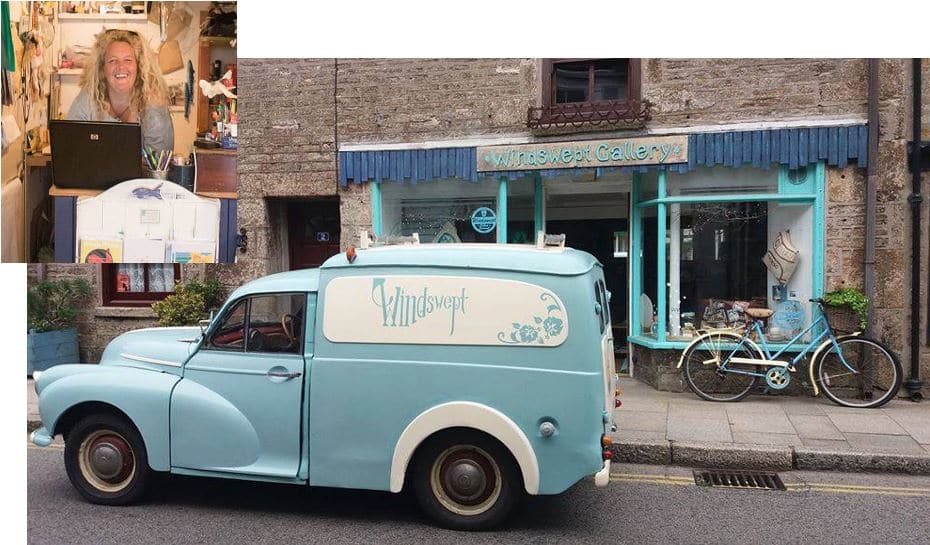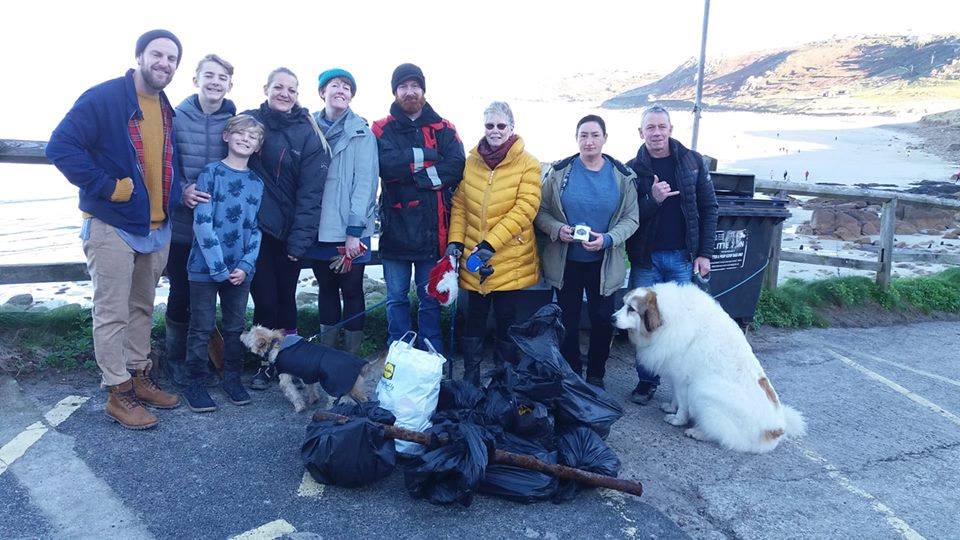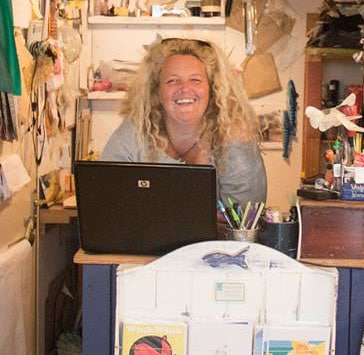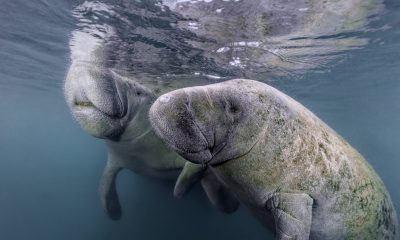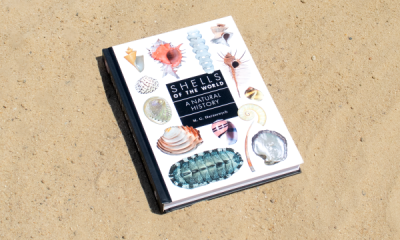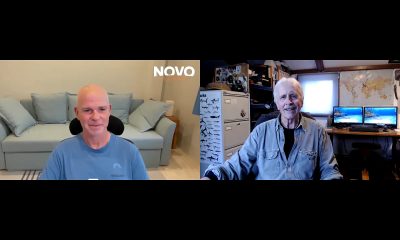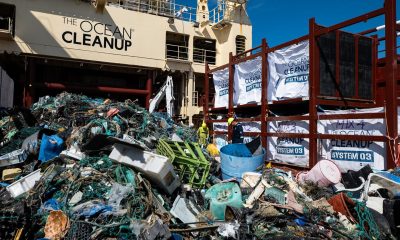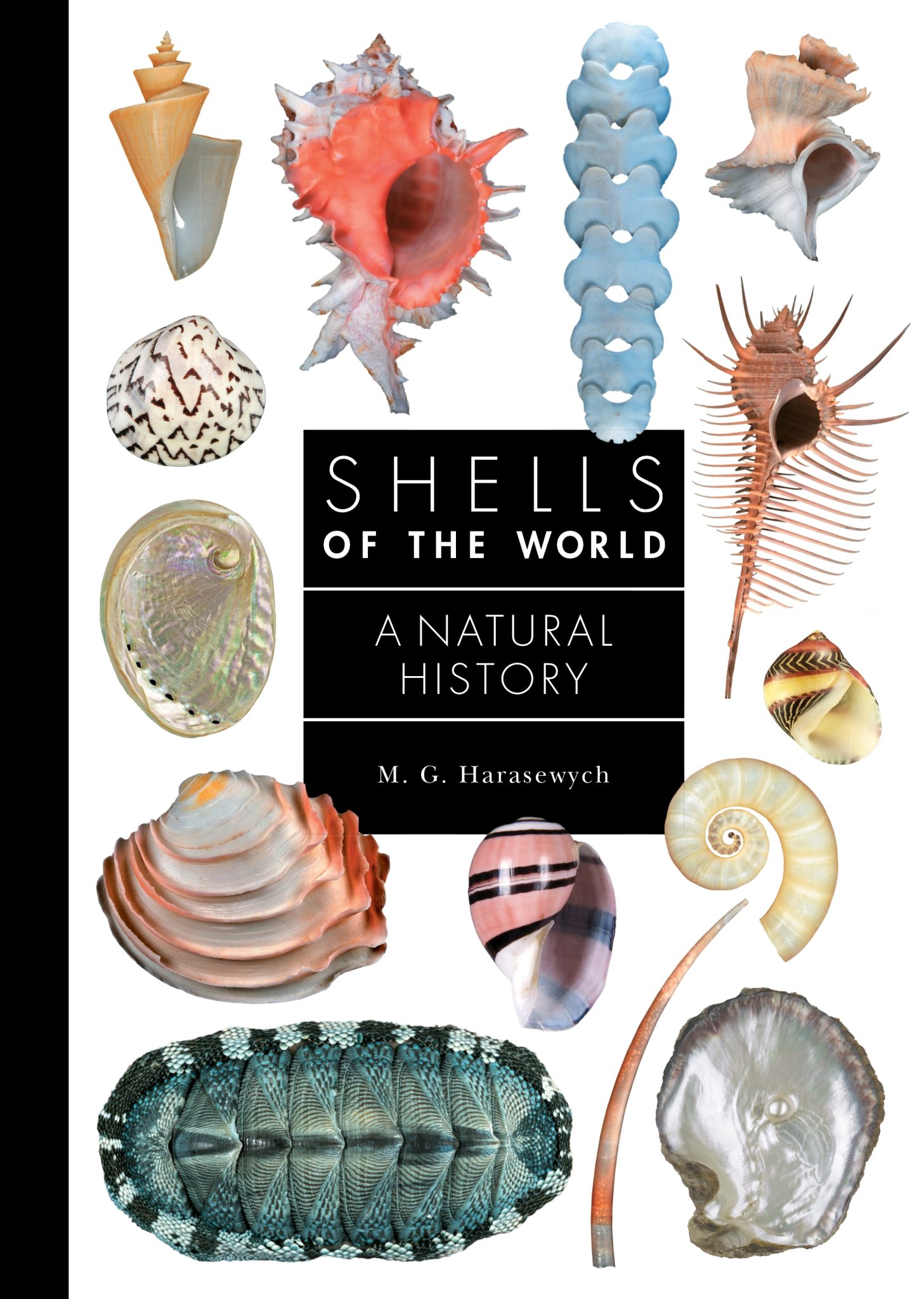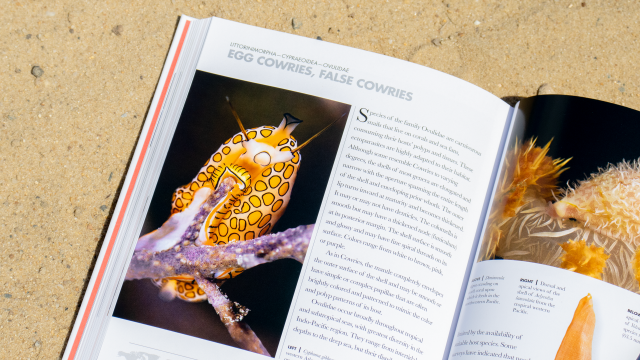Marine Life & Conservation Blogs
Proud of my local town, St. Just, Penwith
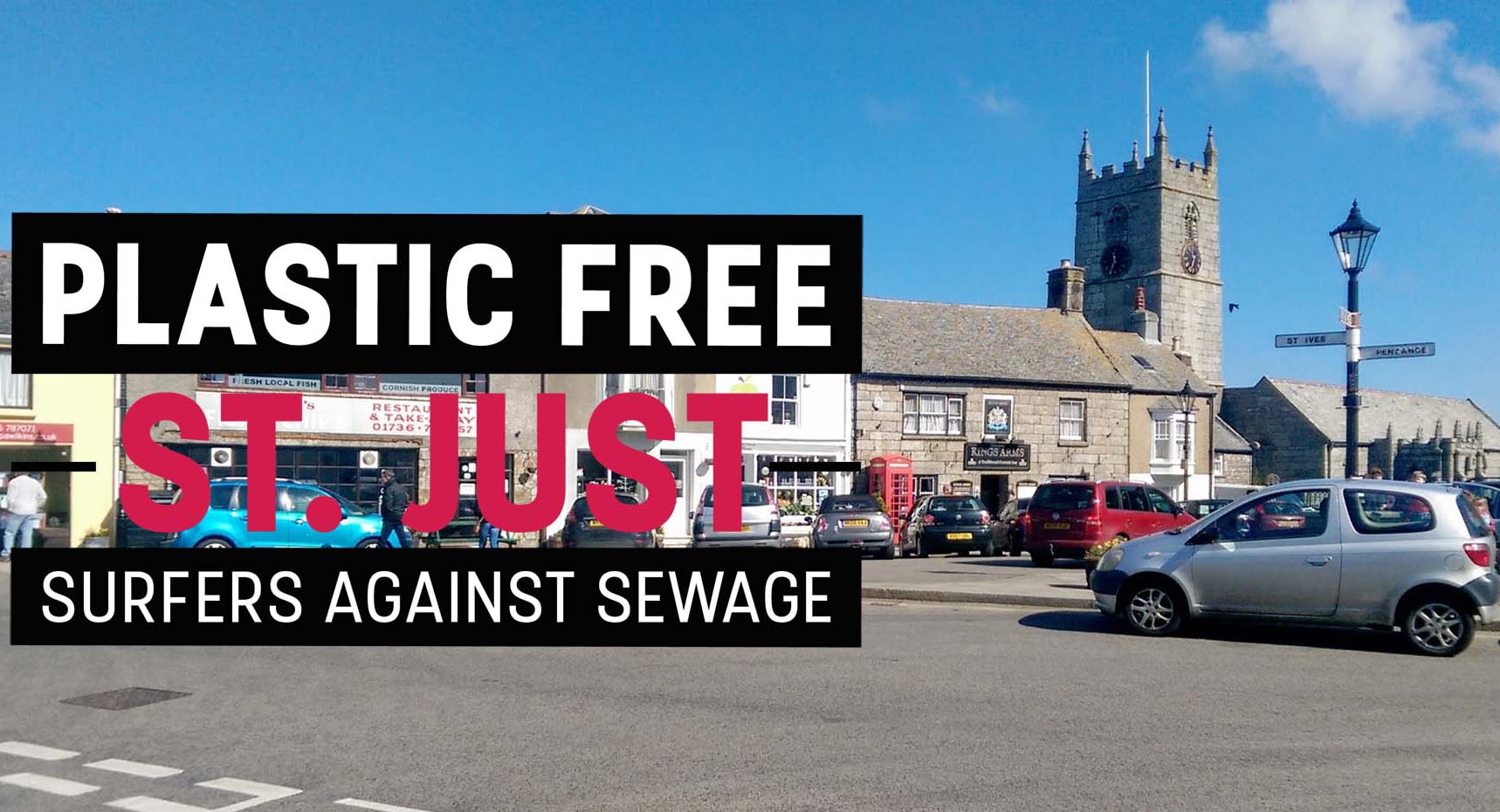
St. Just in West Penwith is not a true coastal town as it lies a few miles inland. But being Cornish, wherever you are, the sea is a great influence in our daily lives. It gives us our weather, our culture, our work place and our great sense of well being. The sea inspires our leisure time, our art and encourages our health. Our beautiful north and south coasts are a wondrous sight and change their mood throughout the year from serene splendour to uncontrollable rage. They are full of an undefinable energy which energises the human soul.
St. Just cares about the sea and it cares about the environment. That is why it recently, in association with Surfers Against Sewage (SAS), became a plastic free town. I’m sure that very few of us are happy with the way our environments are being polluted and probably often complain about it. Well here is the answer. Just get up and do something.
A driving force behind Plastic Free St.Just is Allie Scott, owner of Windswept Gallery. I asked her how this all came about.
Jeff: Hi Allie. Many congratulations to you and St.Just on becoming a plastic free town. Can you tell me what exactly this means?
Allie: Thanks… Basically, in short, this means that as a town we have made a commitment to limiting the amounts, and if possible eradicating, the use of single use plastics. This goes for businesses, local governance, schools, community venues and groups as well as local residents.
Jeff: Is this status recognised nationally by any governing body such as central government or local councils?
Allie: It is. It’s all part of a Government acknowledged scheme, started by SAS, where local Councils across the country acknowledge this as a standard to be achieved in a bid to begin to tackling the problems that single use plastics present. If you see a business displaying the Plastic Free Champion sign, you can be assured that they are taking steps to minimise their consumption and supply of single use plastics.
Jeff: What percentage of the St.Just population and businesses needed to support this to make it a true plastic free town?
Allie: The amount required varies per population, From the 2011 census, St.Just had a population of 5,000, but this has grown since. We had to gain the support of at least six businesses and we are at present at 24 and still growing. Also half of its community spaces, and a third of its schools (we have all three). We have more than this and people are still signing up to join in. This will never stop growing… any business that wants help and advice as to how it can achieve the status is guided through the process and helped in any way possible. This is a long term process… Rome wasn’t made plastic free in a day.
Jeff: What made you decide to do this?
Allie: As a business we have been plastic free for nigh on 25 years; I have never liked to think that something we have produced could and would have a negative impact on the planet. When the scheme came about I asked around the town and there seemed such great and positive support for it so I thought “why not”… It’s great to think that the ethos that our gallery has had for all these years has now been shared with so many. Also as we surf locally and beachcomb most days for materials for our creations we definitely have seen first hand the rise of plastics washing up on our shores. When you are faced with it like that, and see marine animals and birds washed up and harmed by it, it’s hard not to want to do more.
Jeff: Have you always been aware of environmental issues or is this relatively new found with the plastic contaminations?
Allie: No it’s definitely not a new thing for us, Before we moved here we were Environmental Contractors specialising in inner city nature areas and conservation, using traditional skills to manage the environment, so it’s been something we have done for about 30+ years.
Jeff: Have you had full support from the entire community of St.Just or have there been local objections and barriers?
Allie: There have been no objections or barriers but there are still a few people not joined up and that’s fine… they will get there in the end. On the whole though the support has been fantastic and 90% of people and businesses are well onboard, but most importantly the young are involved via schools and youth groups. They then in turn influence their families to hopefully make a few more better informed choices.
Jeff: You mentioned how schools and youth groups have really got behind the project and are supporting it fully. Can you tell me more about this?
Allie: Well all of our schools have signed up to be Plastic Free Schools and part of this, apart from them just cutting down on their own plastic consumption, is that they get involved with writing to Local and Central Government and large businesses requesting that they too start to do something about the amount of plastics there are out there and maybe they could start to develop an alternative that won’t do the damage that plastics do. Also local cub/scout/brownie/guide groups have joined in with beach cleans and are joining in with the pledge to cut plastics, and as soon as they all start up again I shall be approaching the local surf clubs to do the same .
Jeff: Living all my life in and around the sea, I personally have been witness to the insipid build up of plastic waste in our oceans and shores since I began diving over forty five years ago. When did you first fully become aware of how serious the problem was and was there a defining moment?
Allie: I’m not sure there ever was a ‘light bulb’ moment, but there was a definite time when we realised whilst we were out there collecting driftwood for our furniture making we were suddenly picking up more plastics than wood… That was a tad depressing. When we first started about 20 years ago, you would find the odd piece and you would think…oh that’s interesting…that’s come all the way from, say, China…. but then you start to realise that it’s getting more and more and it’s no longer the odd piece. There has also been a rise in dead and injured marine life… and that’s never a nice thing to find.
Jeff: Are there any other towns or cities in Cornwall who are following your lead or have gone before you?
Allie: Well Penzance was the official first Plastic Free Community. But there are many, many more, in fact SAS had to change the campaign from Coastlines to Communities as so many inland towns wished to sign up. There are now 444 (both accredited and working towards accreditation) official Plastic Free Communities all over the country…. we were about 25th I think.
Jeff: Do you think becoming Plastic Free has changed or added value to St Just ?
Allie: I’m not sure… it has brought us together for a common goal whereas before we were a town with many individual businesses, all doing their own thing… but now people are sharing their ideas and suppliers and in some instances bulk buying together, so that’s really great to see. St Just has always been a tight community and now it’s one that is proud of what it has achieved. We are very much ‘living on the edge’ here… both figuratively and literally, so that tends to unite you in ways other places probably don’t understand. I also like to think that maybe visitors will be encouraged to visit safe in the knowledge that we are a town that cares for its local environment as well as the wider world, so I think that can only be for the good.
Jeff: What’s the next stage?
Allie: I would love to get the bigger companies in my area signed up… I’m currently working with our local Co-Op in a bid to get them more plastic aware. We also have a large pasty producer, but to be fair, they aren’t too bad, but there are still a few steps they could take. Other than that, its more beach cleans, more businesses signing up and more raising of awareness to the problem. We shall carry on producing our wares from reclaimed, recycled and sustainable materials, wrapping in paper, and treading as lightly as possible, hopefully with the odd surf thrown in.
Jeff: What advice can you give to someone who wants to go plastic free ?
Allie: Do it! Everyone thinks that someone should do something about this problem… well guess what… that someone starts with you. If you, even on your own, start to look at the choices you make everyday then that’s a great start… But do get others involved… maybe become a community leader for the Plastic Free Communities Campaign (just go on the SAS website for details). Ask your friends, colleagues, club members, school mates to do it with you. I used to get quite down about the problem, but then as I decided to get the community involved I was very heartened by how many other businesses were trying to do their bit too. It’s not hard and it can be fun. People used to say to me… what’s the point? What difference can I alone make? Well, if 1 million people stop using take away coffee cups and use a keep cup, then that’s 1 million less cups in landfill… it soon adds up. We don’t have endless time to sort out this problem… we have to start now and stop adding to the disaster that is out there and of our making in the first place. Then, and only then, will future generations have a chance.
Jeff: Thanks Allie. Please do keep me informed about events and beach clean-ups.
Allie: Thanks for asking and being interested in what we do, and feel free to join us for the next beach clean… details on our Facebook pages…Windswept Gallery or Plastic Free St Just.
Blogs
Heading out on the water this Summer? Watch for manatees
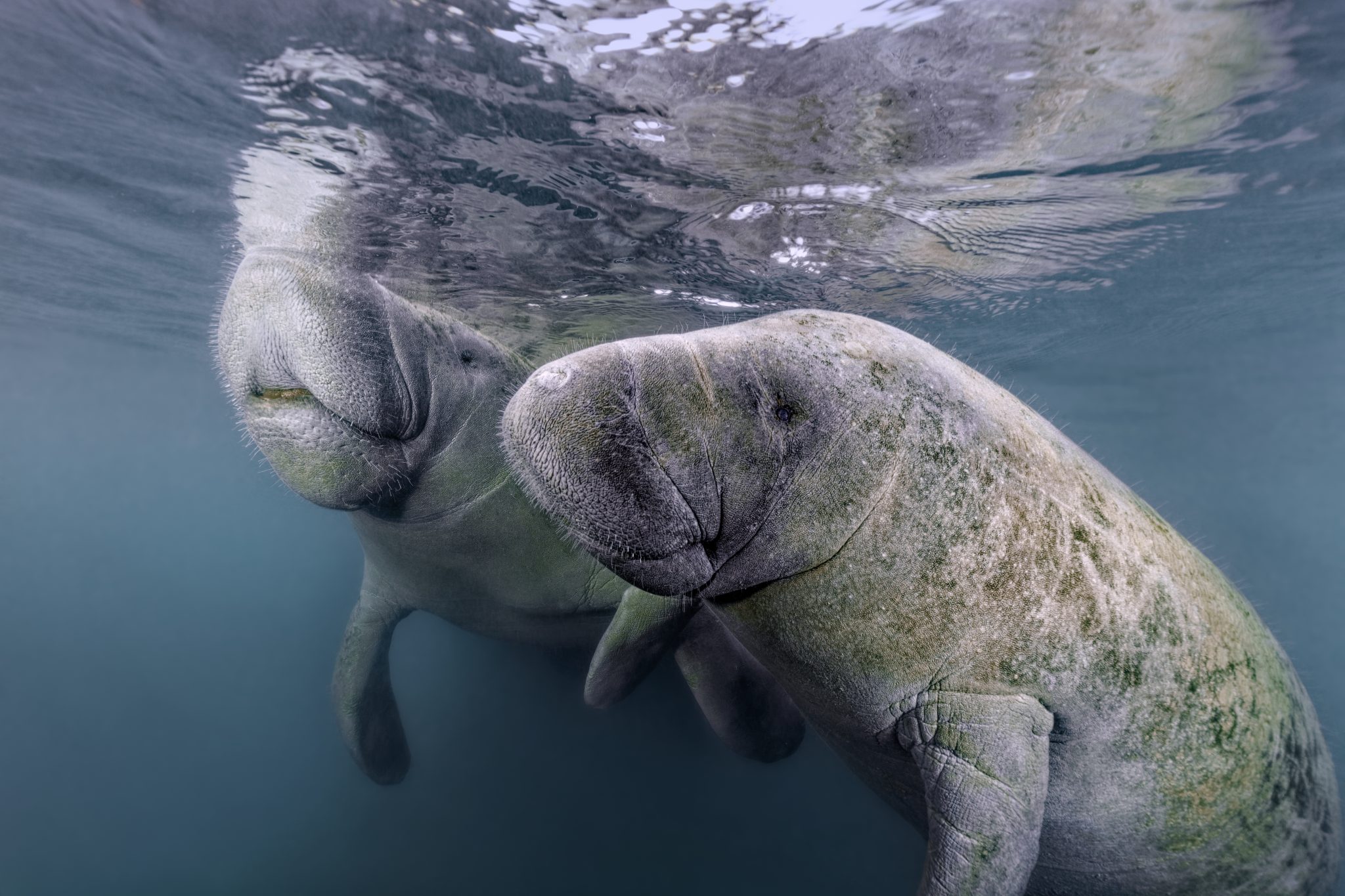
As National Safe Boating Week approaches, Save the Manatee® Club is urging boaters, and anyone that enjoys Florida’s waterways, to respect and protect the defenseless manatees that inhabit our shared waterways. From May 18 to 24, leading up to Memorial Day Weekend, the campaign aims to raise awareness about recreational boating safety and the importance of safeguarding imperiled manatees during the summer boating season. This week also emphasizes the importance of encouraging boaters to enroll in a boating safety course.
Manatees are semi-migratory marine mammals that are commonly found in shallow estuaries, bays, rivers, canals, and coastal areas throughout Florida and neighboring states. With some manatees venturing as far west as Texas and as far north as Massachusetts, collisions between these gentle giants and watercraft have become distressingly frequent. Boat propellers and high-speed collisions pose significant threats to manatees, often resulting in severe injuries or even death.
Save the Manatee Club is calling on all water enthusiasts to follow essential manatee safety tips to ensure the well-being of the imperiled manatee:
- Obey Speed Zone Signs: Familiarize yourself with and adhere to posted speed limits to prevent collisions with manatees.
- Reduce Glare with Polarized Sunglasses: Wear polarized sunglasses to enhance visibility and spot manatees below the water’s surface.
- Recognize Manatee Signs: Learn to identify signs of manatees in the area, such as swirls or flat spots on the water caused by their movements.
- Respect Manatee Sanctuaries: Keep a safe distance from posted manatee sanctuaries and avoid pursuing or harassing these marine mammals, as it is illegal and can disrupt their natural behaviors.
- Report Distressed Manatees: In Florida, promptly report distressed, injured, tagged, or orphaned manatees to the Florida Fish and Wildlife Conservation Commission (FWC) at 1-888-404-FWCC (3922). Outside of Florida, report sightings to the appropriate state agency or rescue organization. A list of agencies to contact is available at savethemanatee.org/report.
- Protect Seagrass Beds: Avoid boating over seagrass beds and shallow areas where manatees may be feeding. Stick to deep water channels while remaining vigilant, as manatees also utilize these channels during their travels.
- Dispose of Fishing Line Responsibly: Anglers should properly dispose of or recycle used fishing line to prevent entanglement hazards for manatees.
“Each year, National Safe Boating Week provides an excellent reminder for all of us to be aware that we share our waterways with vulnerable manatees,” emphasized Patrick Rose, Aquatic Biologist and Executive Director of Save the Manatee Club. “With the recent Unusual Mortality Event on Florida’s East Coast claiming an alarming number of manatees’ lives, it is more crucial than ever to prevent preventable deaths caused by watercraft collisions. By following manatee-safe boating guidelines, such as obeying speed zones and remaining vigilant for manatees, everyone on the water can contribute to the protection of these gentle giants.”
Save the Manatee Club offers a range of free materials to help safeguard manatees and raise awareness about manatee-safe boating practices. Shoreline property owners and park or marina managers can order aluminum dock signs to alert others about the presence of manatees in their areas. Boaters and paddlers can request packets containing a safety tips card, a waterproof boat banner, and a decal to display on their vessels, providing the number to report manatees in distress. To view and request these materials, visit savethemanatee.org/resources. Save the Manatee Club will also be hosting a live webinar for National Safe Boating Week on Tuesday, May 21st at 6pm EST. To register, visit savethemanatee.org/register.
Marine Life & Conservation Blogs
Book Review: Shells of the World
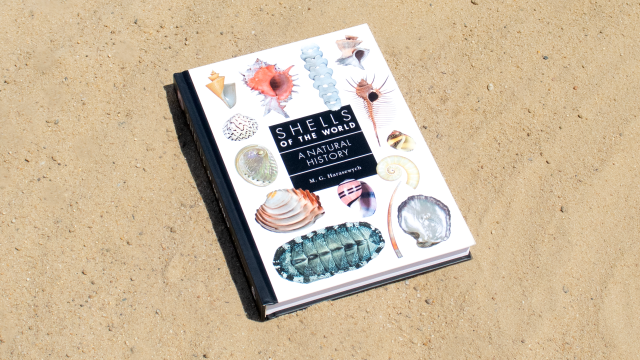
Shells of the World: A Natural History by M.G. Harasewych
Shells of the world is a guide to the world of marine, shelled molluscs. And what a varied and interesting world it is. Some of my favourite things to find on a dive are detailed in this book, including disco clams (or Electric File Clams as they are correctly names), the cephalopods, giant clams and sea hares. There are also many on my wish list, top of which is the Nautilus.
Each chapter provides a detailed description of the species, along with beautiful images. You can dive deeper and discover where they live, both with global distribution and the habitat they prefer. Learn about their diet, reproduction and diversity.
Having dipped in and out of this lovely book over the past few weeks, it has inspired me to learn more about this group of animals that we see on most divers, wherever we are in the world. Some of the shells are incredibly intricate and beautiful. I have always agreed with never collecting, or touching, marine life. The description of a certain set of cone shells should be a warning to those that are happy to pick up marine life! One of the cone shells has a local name called the cigarette snail. Why? Because once the venom is in your system from this animal, you only have time to smoke one cigarette before the affects of the venom are fatal!
What the publisher says:
Mollusks are invertebrate animals with a remarkable natural history and a rich fossil record, and their shells are prized for their breathtaking variety and exquisite beauty. Shells of the World provides a wide-ranging look at the incredible diversity of marine mollusks. An informative introduction outlines the lineages covered, followed by a directory section, split into classes, that profiles a broad selection of different taxa to give a sense of their sheer numbers and variety.
- Features hundreds of beautiful color photos, depicting both the live animals and their shells
- Discusses mollusk evolution, anatomy, life cycles, behavior, and ecology
- Describes unique characteristics, distribution, habitat, and size
- Provides valuable insights into the conservation of the world’s marine mollusks
- Ideal for malacologists and shell collectors everywhere
About the Author:
M. G. Harasewych is research zoologist emeritus and former curator in the Department of Invertebrate Zoology at the Smithsonian Institution’s National Museum of Natural History. A fellow of the American Association for the Advancement of Science, he is the author (with Fabio Moretzsohn) of The Book of Shells: A Life-Size Guide to Identifying and Classifying Six Hundred Seashells.
Book Details
Publisher: Princeton University Press
Hardcover
Price: £25
ISBN: 9780691248271
Published: 9th April, 2024
-

 Marine Life & Conservation Blogs3 months ago
Marine Life & Conservation Blogs3 months agoCreature Feature: Swell Sharks
-

 Gear Reviews4 weeks ago
Gear Reviews4 weeks agoGEAR REVIEW – Revolutionising Diving Comfort: The Sharkskin T2 Chillproof Suit
-

 Blogs2 months ago
Blogs2 months agoMurex Resorts: Passport to Paradise!
-

 Blogs3 months ago
Blogs3 months agoDiver Discovering Whale Skeletons Beneath Ice Judged World’s Best Underwater Photograph
-

 News3 months ago
News3 months agoPADI Teams Up with Wellness Brand Neuro to Drive Ocean Change and Create a Blue State of Mind
-

 Gear Reviews3 months ago
Gear Reviews3 months agoGear Review: Oceanic+ Dive Housing for iPhone
-

 Marine Life & Conservation2 months ago
Marine Life & Conservation2 months agoSave the Manatee Club launches brand new webcams at Silver Springs State Park, Florida
-
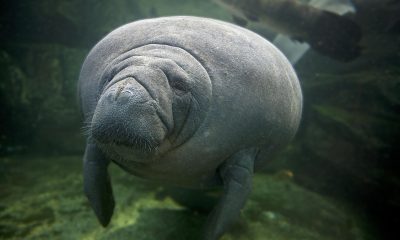
 Blogs2 months ago
Blogs2 months agoSeagrass Awareness Month brings critical food source for Manatees to centre stage


